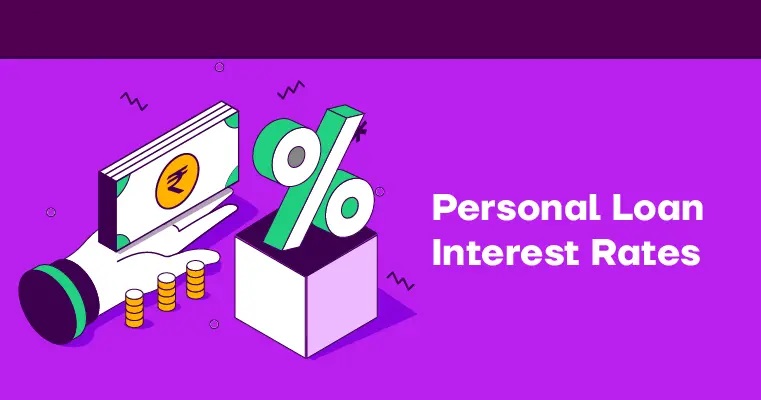Understanding Personal Loan Interest Rates Today

Table of Contents
Factors Influencing Personal Loan Interest Rates
Several factors play a significant role in determining the interest rate you'll receive on a personal loan. Understanding these factors is crucial for securing a favorable rate.
Credit Score: The Cornerstone of Your Interest Rate
Your credit score is arguably the most influential factor affecting your personal loan interest rates. Lenders use your credit history, reflected in your FICO score, to assess your creditworthiness. A higher credit score indicates a lower risk to the lender, resulting in lower interest rates. Conversely, a lower credit score signals a higher risk, leading to significantly higher interest rates – or even loan denial.
- Excellent Credit (750+): Expect the lowest interest rates available.
- Good Credit (700-749): You'll likely qualify for competitive rates.
- Fair Credit (650-699): You might still qualify, but expect higher interest rates.
- Poor Credit (Below 650): Securing a loan will be more difficult, and interest rates will be substantially higher, if approval is granted.
To improve your credit score:
- Pay all bills on time.
- Keep your credit utilization ratio low (ideally below 30%).
- Avoid opening multiple new credit accounts in a short period.
- Dispute any errors on your credit report.
Loan Amount and Term: The Balancing Act
The amount you borrow and the loan's repayment period directly impact your interest rate. A larger loan amount often carries a higher interest rate because it represents a greater risk to the lender. Similarly, a longer loan term (e.g., 60 months vs. 36 months) typically leads to a higher overall interest rate, although your monthly payments will be lower. Understanding the amortization schedule—how your loan payments are allocated to principal and interest—will clarify the total interest paid over the loan's life.
- Shorter loan terms: Result in lower total interest paid but higher monthly payments.
- Longer loan terms: Result in higher total interest paid but lower monthly payments.
- Larger loan amounts: Typically lead to higher interest rates.
Lender Type and Fees: Comparing Apples to Oranges
Interest rates vary considerably among different lenders. Banks, credit unions, and online lenders each offer unique advantages and disadvantages. Banks often offer competitive rates for borrowers with excellent credit, while credit unions may provide more favorable terms for members. Online lenders are known for their convenience and sometimes offer competitive rates, but always scrutinize their fees. Be aware of origination fees (charged upfront) and prepayment penalties (charged if you repay the loan early).
- Banks: Often offer competitive rates for borrowers with good credit.
- Credit Unions: May offer better rates for members, emphasizing member benefits over profit.
- Online Lenders: Offer convenience but carefully review fees and terms.
Current Economic Conditions: The Macroeconomic Influence
The prevailing economic climate significantly influences personal loan interest rates. Factors such as the federal funds rate (set by the Federal Reserve), the prime rate (a benchmark rate for lending), inflation, and the overall economic health directly impact lenders' risk assessment and their willingness to offer lower rates. During economic uncertainty or recession, interest rates tend to rise to offset increased risk.
- High inflation: Often leads to higher interest rates.
- Economic recession: Can lead to increased interest rates as lenders become more risk-averse.
- Low interest rates from the central bank: Generally translate to lower borrowing costs.
How to Find the Best Personal Loan Interest Rates
Finding the best personal loan interest rates requires careful planning and comparison.
Shop Around and Compare: Don't Settle for the First Offer
Obtaining multiple loan quotes from various lenders is crucial. Use online comparison tools and websites to streamline the process. Don't just focus on the advertised APR (Annual Percentage Rate); carefully examine all fees and terms.
- Use online comparison tools: Many websites allow you to compare offers from multiple lenders side-by-side.
- Check with multiple lenders: Don't limit yourself to one bank or credit union.
- Read the fine print: Carefully review all terms and conditions before signing a loan agreement.
Improve Your Credit Score: A Proactive Approach
As highlighted earlier, your credit score heavily influences the interest rate you qualify for. Taking steps to improve your credit score before applying for a loan can dramatically reduce your interest rate.
- Check your credit report: Review your reports for errors and take steps to correct them.
- Pay down debt: Reducing your debt-to-income ratio will significantly help your credit score.
- Maintain good credit habits: Pay your bills on time and keep your credit utilization low.
Negotiate with Lenders: Leverage Your Strengths
Don't be afraid to negotiate with lenders. If you have a strong credit score and multiple offers, you can use them to your advantage to potentially secure a lower interest rate.
- Highlight your strong credit score: Emphasize your financial stability.
- Present competing offers: Show lenders you've shopped around.
- Be polite and professional: Maintain a respectful tone throughout the negotiation process.
Conclusion
Securing favorable personal loan interest rates requires careful consideration of several factors, including your credit score, loan amount, loan term, lender type, and the prevailing economic conditions. By shopping around, improving your credit score, and negotiating effectively, you can significantly improve your chances of obtaining the best personal loan rates. Start comparing personal loan interest rates today to find the best loan for your needs! Explore competitive personal loan rates and secure low personal loan interest rates by diligently researching and comparing offers.

Featured Posts
-
 A 99th Minute Tragedy Dissecting Ajaxs Nine Point Collapse And Lost Championship
May 28, 2025
A 99th Minute Tragedy Dissecting Ajaxs Nine Point Collapse And Lost Championship
May 28, 2025 -
 2025 Arizona Diamondbacks Guide Promotions Giveaways And Events At Chase Field
May 28, 2025
2025 Arizona Diamondbacks Guide Promotions Giveaways And Events At Chase Field
May 28, 2025 -
 Gunners Lead Race For Striker Despite Tottenhams 58m Bid
May 28, 2025
Gunners Lead Race For Striker Despite Tottenhams 58m Bid
May 28, 2025 -
 Arsenal Gyoekeres Teljesitmenyelemzes Es Statisztikai Attekintes
May 28, 2025
Arsenal Gyoekeres Teljesitmenyelemzes Es Statisztikai Attekintes
May 28, 2025 -
 Mc Kenna Inspires Belief At Ipswich Town Phillips Testimony
May 28, 2025
Mc Kenna Inspires Belief At Ipswich Town Phillips Testimony
May 28, 2025
Latest Posts
-
 Elections Municipales Metz 2026 L Avenir Politique De Laurent Jacobelli
May 30, 2025
Elections Municipales Metz 2026 L Avenir Politique De Laurent Jacobelli
May 30, 2025 -
 Emission Europe 1 Week End Veron Et Jacobelli
May 30, 2025
Emission Europe 1 Week End Veron Et Jacobelli
May 30, 2025 -
 Retraites Laurent Jaccobelli Evoque Une Potentielle Alliance Rn Gauche
May 30, 2025
Retraites Laurent Jaccobelli Evoque Une Potentielle Alliance Rn Gauche
May 30, 2025 -
 Aurelien Veron Et Laurent Jacobelli Sur Europe 1 Week End
May 30, 2025
Aurelien Veron Et Laurent Jacobelli Sur Europe 1 Week End
May 30, 2025 -
 Municipales Metz 2026 Laurent Jacobelli Candidat
May 30, 2025
Municipales Metz 2026 Laurent Jacobelli Candidat
May 30, 2025
